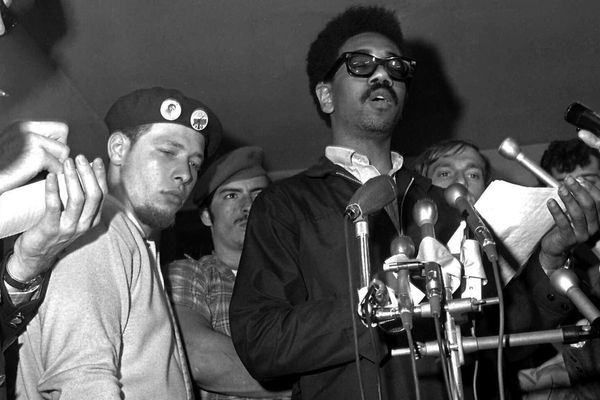
The outrage over the government legislating “the right to disconnect” for workers is palpable, with employer groups and their media cheerleaders frothing at the mouth about their right to ring workers at midnight. Although, it’s a fair question to ask whether ministers, or politicians generally, will bother giving their staff the right not to be contacted at all hours.
That it’s part of a broader suite of changes designed to provide better protections for exploited gig economy and casual workers only makes it worse — it’s all about “extending the archaic inflexibility of Australia’s complex, legalistic and proscriptive industrial relations regime”, the Financial Review yelled today.
That’s the complex, legalistic and proscriptive industrial relations regime that delivered unemployment with a three in front of it, a decade of wage stagnation, a record low of industrial disputation that is a tiny fraction of 1990s levels, and a shift in the profit share of national income to record highs. Then again, many employers and the AFR won’t be happy until the last dollar is ripped from workers, and their last protections stripped away in the name of profit.
Labor has — rightly — come under fire for ditching its hard-and-fast promise to keep the stage three tax cuts. Oddly, however, it’s being relentlessly criticised for keeping its industrial relations promises. It went to the last election with a clear agenda to legislate changes on gig workers, workers kept casual despite being effectively permanent, same-job-same-pay requirements, criminalising wage theft and tilting the industrial relations playing field slightly back in favour of workers. Minor additions such as the “right to disconnect” were made in order to get the central reforms through the Senate with support from the Greens.
What business and their mouthpieces are really angry about is that after a near-decade of being given everything they want by the Coalition, they’re facing an environment in which workers have greater power and willingness to use it. The working-from-home “debate” is a classic example: old-school employers — who think workplaces can only function if they can see and directly control staff — and commercial property owners demand workers return to the office despite no evidence that WFH impacts productivity (the latest data, from the San Francisco Fed, shows no impact either way).
The “right to disconnect”, if more trivial, is very similar — it’s about unlimited employer control of staff, the demand that workers always be available in exchange for the privilege of having a job. It’s taking business a long time to adjust to a new industrial relations environment in which workers are increasingly rejecting such demands for control. That’s partly because the demographic tide is turning: even with record participation levels, we don’t have enough workers, especially in service industries, and our reliance on importing them is growing even as communities become more restive about high immigration levels. Employers have to compete much more vigorously for talent.
But it’s also partly because this is the industrial relations environment that business itself has created. Employers spent 2013-22 doing their best to immiserate workers with no wage rises or, in some major private industries, real wage cuts. They spent it demonising unions, outsourcing work to sham “contractors” paid below award rates, stealing wages across virtually every industry large and small in the country, exploiting foreign students and temporary migrants to undercut wages for Australians, cutting penalty rates and using new technology to create an underclass of service workers in the gig economy.
But that wasn’t enough for them — they always wanted more “flexibility” and less “regulation”; every claim for a wage rise was opposed as job-destroying, every industrial dispute the result of “militant” union thugs, every court decision in favour of workers a blow to investment and growth. Having treated their own workers so badly for so long, employers now complain about poor productivity (even as Australians work longer than ever) and say workers are lazy.
Does anyone blame workers for not wanting to deal with such people face to face, or give up ever-reducing family time in order to work unpaid out of hours? Does anyone seriously blame workers if they want some basic protections? If employers want to complain about productivity, or lack of flexibility, or laziness, maybe they should look in a mirror first.
And now that the demographic tide is turning in favour of workers, they might need to accept the easy days of exploiting workers for an ever-increasing profit share are coming to an end, and start seeing them instead as valuable partners. Imagine that.
Are Labor’s industrial relations changes a step in the right direction? Let us know your thoughts by writing to letters@crikey.com.au. Please include your full name to be considered for publication. We reserve the right to edit for length and clarity.







